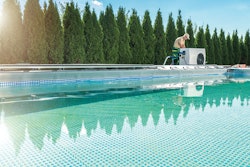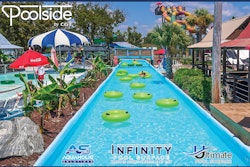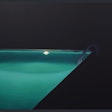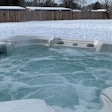Imagine an enjoyable — and educational — "vacation" with Uncle Sam, in the form of our tax laws, picking up part of the tab. That's right, every spa and pool business, the owner and employees of that spa and pool business (even someone who is a shareholder/employee), can legitimately claim an income-tax deduction for the expenses paid or incurred in attending trade shows, conventions and meetings.
Naturally, there are restrictions. A major downside to the convention-expense deduction is that it is not available for the expenses of attending a convention or meeting related to investments or other income-producing property. Usually all that is required to qualify for convention-related tax deductions is that you be able to show, if asked, that attendance at the trade show, meeting, convention or other event benefited your business.
In essence, the government, in the form of the Internal Revenue Service, will pick up the tab for a sizable portion of your expenses while attending a trade show or convention, if you follow the rules. The expenses of selling at a show or event are also deductible as legitimate sales expenses.
DEDUCTING THE ESSENTIALS
The expenses incurred while traveling to the site of that convention, trade show or event are tax deductible. Tax deductible travel expenses include such expenditures as the cost of traveling by plane, train, bus or car between your home and the site of the meeting, convention or trade show. Also included are the expenses of taxicabs, commuter bus and airport limousines, baggage and shipping costs for samples or display materials, lodging and meals, cleaning, telephone and even tips. And, don't forget the costs associated with attending the convention itself, such as registration fees, charges for awards dinners, seminars, etc. How, and at what expense, you get to that convention site, the cost of lodging and meals are legitimate deductions — if you are away from home overnight or long enough that you need to stop for sleep or rest.
When it comes to meals, the tax rules contain quite a few restrictions — and also allowances that some might consider "loopholes." Generally, expenses for meals include all amounts spent for food, beverages, taxes and related tips. That tax deduction for meals is considered "entertainment," however, and is limited to 50 percent of the amount actually spent.
Under the tax rules, an attendee can use either the actual cost of the meals or a standard amount in order to compute the conventionrelated meals expense. If you, as an individual, are reimbursed for those expenses, how you apply the 50 percent limit depends on whether your employer's reimbursement plan was accountable or non-accountable. Check with your accountant or your supervisor if you don't know which method your company uses.
BRINGING COMPANY
If an attendee's spouse, family member or other person accompanies them, neither the attendee nor the spa and pool business can deduct their travel expenses.
The travel expenses for anyone accompanying a spa or pool professional are deductible only if that individual:
- Is your employee;
- Has a bona fide business purpose for the trip; and
- Would otherwise be allowed to deduct the convention expenses.
In order for a bona fide business purpose to exist, the pool or spa professional or business must prove a real business purpose for the individual's presence. Incidental services, such as typing notes or assisting in entertaining customers is no longer enough.
Consider a spa and pool business owner, Michael Peters, who, along with his wife Mary, drove to Chicago to attend a convention. Because Mary is not Michael's employee and even if her presence serves a bona fide purpose, her expenses will not be tax deductible.
Michael pays $115 per night for a double room. A single room costs $90 per night. He can deduct the total cost of driving his car to and from Chicago, but only $90 per night for his hotel room. If he uses public transportation, he can deduct only his fares.
As mentioned, as an alternative to the actual cost method, both selfemployed business owners and employees can deduct a standard amount for their daily meals and incidental expenses while attending a convention. The alternative deduction allows the attendee to deduct a set amount, depending on the destination and time period the travel takes place.
However, even when this standard meal allowance is used, records must be kept to prove the time, place and business purpose of any travel or convention attendance. Unfortunately, if your employer is related or is an incorporated spa and pool business in which you are more than a 10 percent owner, the standard meal allowance cannot be used.
The standard meal allowance is the official Federal Meals and Incidental Expense (M&IE) rate. For expenses incurred after October 25, 2005, the standard meal allowance has varied between $45 and $58 per day for most areas of the United States. Maximum per-diem rate, including lodging, varied between $141 and $225 per day at the end of 2005.
SELLING OR PROMOTING
Every spa and pool professional can attend a trade show or convention and claim the expenses as an income tax deduction. Similar tax deductions are available where you have a promotional or sales booth at an event or show — even a home, outdoor or recreation show for the general public. In other words, the expenses of exhibiting or selling at a trade show or other event are also tax-deductible business expenses.
Under our income tax laws, it is immaterial whether the booth you set up at a show is for the purposes of promoting your business, your products or your services — or for the purpose of selling those same goods, products or services. Even where the business is engaged in direct sales to the public the expenses, for the most part, are tax deductible.
Remember, however, expenses incurred in creating a unique display or booth may not qualify for an immediate income tax deduction. If, however, that display or booth, is for one-time use only, if it is not adaptable to other events or venues, then perhaps an immediate tax deduction as an expense for property with a useful life of one year or less might be in order. Otherwise, the depreciation rules come into play.
If depreciation is the route that must be taken, do not overlook the tax deduction for abandonment of a business asset for the entire book value of any asset that is no longer useful to the pool and spa business. Naturally, that asset must actually be abandoned or disposed of (not merely stored).
FURTHER ENJOYMENT
The tax rules clearly state that all travel expenses are tax deductible if the trip to the convention or trade show was entirely business related. However, what if an attendee or exhibitor decides to combine that trade show attendance or staffing a sales or promotional exhibit with a vacation?
If the trip was "primarily" for business and, while at the convention or trade show, you extended your stay for a vacation, made a non-business side trip or had other non-business activities, you may still deduct your business-related travel expenses. Those expenses include the travel costs of getting to and from the convention destination and any business-related expenses at that destination.
If, however, the trip was primarily for personal reasons, such as a vacation, the entire cost of the trip is a nondeductible personal expense. Naturally, you can deduct any expenses you have while at your destination that are directly related to attendance at the trade show or convention.
BACKING IT UP
In order to claim any tax deductions, a spa and pool dealer must be able to prove that the expenses were actually paid or incurred. In fact, the following expenses, which are deemed by the IRS as particularly susceptible to abuse, must generally be substantiated with adequate records or sufficient corroborating evidence: expenses with respect to travel away from home (including meals and lodging), entertainment expenses and business gifts. Under our tax rules, all that is required is a legitimate business purpose for those trade show or convention expenses.
Self-employed individuals and employees whose expenses are not reimbursed may, fortunately, use the standard M&IE rate for meal and incidental expenses while traveling away from home without question by the ever-vigilant Internal Revenue Service. Although the actual amount of the deduction is taken from tables provided by the IRS, you must still prove (through adequate records or sufficient corroborative evidence) the time, place and business purpose of the convention travel.
WRITING IT OFF
By now, it should be evident that every spa and pool professional can write-off or deduct the expenses of attending or exhibiting at a trade show, meeting, convention or other event. Under our tax rules, all that is required is a legitimate business purpose for those trade show or convention expenses.
In reality, the agenda of the convention does not have to deal specifically with your spa and pool business; it is enough that you can reasonably be expected to gain some business benefit from attending or exhibiting at that event. Imagine, reaping business benefits, an education and enjoyment wrapped up in one trip to a convention, trade show or meeting. And, best of all, those expenses may qualify as a legitimate tax deduction.











































